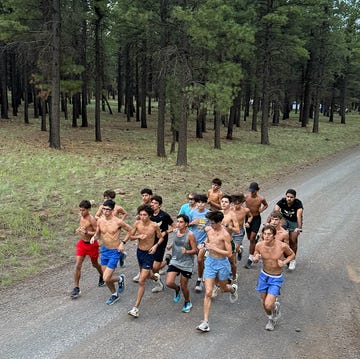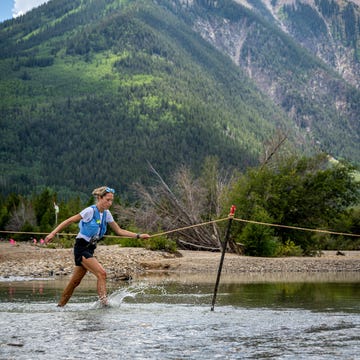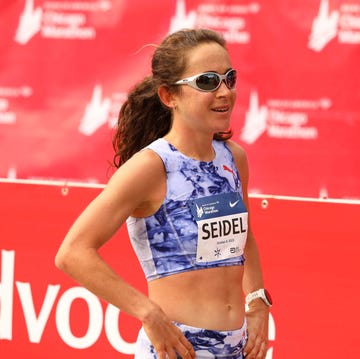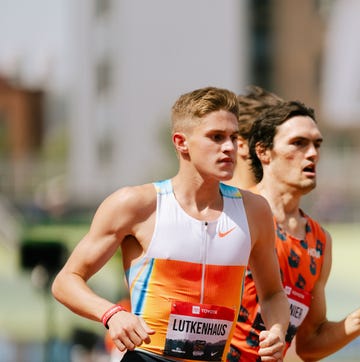On Saturday morning, the weather forecast for the U.S. Olympic Marathon Trials in Orlando, Florida, calls for sunny skies and temperatures mostly in the 60s.
The men’s race will start at 10:10 a.m. ET, and the women will follow at 10:20 a.m. The first finishers from the race are expected to start crossing the line a little after 12:15 p.m.
According to Weather.com, it is projected to be 58 degrees Fahrenheit at 10 a.m., climbing to 62 degrees at 11 a.m. and 66 degrees at 12 p.m. At 1 p.m., it will reach 69 degrees.
The humidity will gradually decrease throughout the day, from 68 percent at 10 a.m. to 43 percent at 1 p.m. The “feels like” temperature isn’t predicted to get above 69 degrees until 2 p.m. The bright sun could also affect performance, studies have shown.
While weather in the 60s means ideal spectating conditions for fans, it’s slightly warm for a major marathon. Most marathoning records are set in the fall or spring in temperate climates, where temperatures are often in the 40s and 50s.
The potential impact of the weather at the Trials has been a point of contention in the months leading up to the race.
In July, USA Track & Field (USATF) announced a noon start time, spurring many athletes to voice concerns that the temperature could reach unsafe levels during the race. At the 2016 Marathon Trials in Los Angeles, temperatures climbed into the mid-70s and—coupled with an inadequate amount of water provided—a significant number of athletes did not finish the race.
In October, the USATF Athlete Advisory Committee sent a letter to the organizing committee of the Trials, urging them to move the start time earlier. All parties ultimately agreed to move the start time to 10 a.m.
At the elite athlete press conference on Friday morning, some athletes said that they think fast times are possible on the course. Many of the top contenders have adjusted their training in recent months to account for a potentially warm and humid race day.
Scott Fauble, who owns a PR of 2:08:52 from the 2022 Boston Marathon, thinks in order to make the Olympic team, the top three athletes will have to run under the Olympic Standard of 2:08:10. He thinks the mid-60s weather won’t deter that.
“The weather is not bad enough to slow people down,” he said. “I think everyone should have prepared for it … I think the level of competition is high enough and the conditions will be such that we’re going to have three people in Paris.”
Clayton Young echoed the sentiment. He comes in with the second-fastest qualifying time for the Trials (2:08:00), and he believes that the warm conditions could play into his favor. He won the 2019 NCAA 10,000-meter title on a hot night in Austin, Texas.
“I’ve always embraced the heat and humidity,” he said. “So when the [start] time changed from noon to 10, it didn’t really matter to me that much.”
Theo Kahler is the news editor at Runner’s World. He’s a former all-conference collegiate runner at Winthrop University, and he received his master’s degree in liberal arts studies from Wake Forest University, where he was a member of one of the top distance-running teams in the NCAA. Kahler has reported on the ground at major events such as the Paris Olympics, U.S. Olympic Trials, New York City Marathon, and Boston Marathon. He’s run 14:20 in the 5K, 1:05:36 in the half marathon, and enjoys spotting tracks from the sky on airplanes. (Look for colorful ovals around football fields.)













